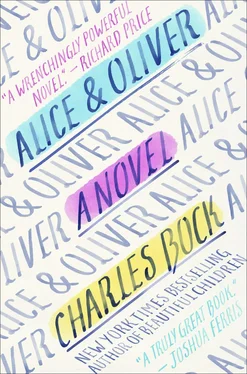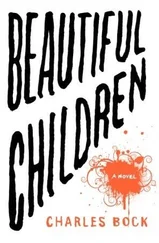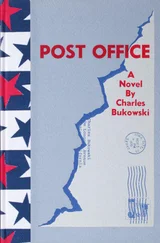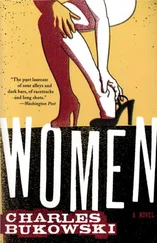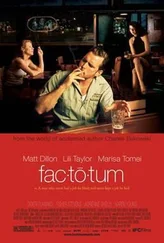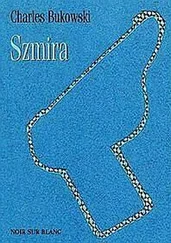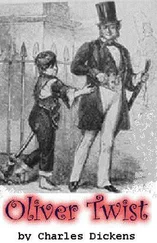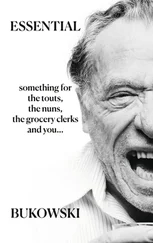The false spring hadn’t fully disappeared, but nights were getting cooler. Tonight’s air was thick, sticky with the promise of rain. Streetlamp light was diffusive, the neon from stores carrying in small, thinning clouds. Alice shielded her eyes, looked away from brighter areas. With each step she measured and placed herself firmly on the uneven sidewalk. She also used each taken step as an exercise; first to acknowledge the fear in her, and then to gather resolve, continue onward. A few times she felt around Oliver’s arm, tightening her grip, signaling he should slow. The residual stench of dry ice remained, even stronger out here. Still, being outside was a pleasure, the gloom of the Meatpacking District a treat. Even her developing sweat felt delicious, almost libidinous. Doe’s neck was craned as well. Staring at Mommy, her eyes sparkled, that consciousness dawning, thinking what?
At the intersection of West Thirteenth, beneath the near edge of the elevated tracks, a pair of transvestite hookers were at their usual spot, one fixing her wig and applying mascara, the other scarfing popcorn. Donette and Michelle’s thing: they dressed up as identical schoolgirl sisters. Alice had long grown accustomed to them coveting her boots, mangling pronunciation of the brand name of the pencil skirt they swore they’d cut her for. Tonight, however, their cattiness gave way to stone silence. What she must have looked like. She mentioned as much to Oliver.
He did not respond. Rather, she felt a different transition taking place inside him, his fingertips tensing, now gripping her hip, his posture going rigid.
She looked to him and saw his eyes squinting, his attention focused.
“Motherfuck,” he said.
Alice tried to follow, to see what he saw; what met her were blurs, black streaks.
“What?” she asked, but knew, a horrible thrill. “Not again.”
The anger consolidating through him was her answer. But he wouldn’t, he c ouldn’t abandon his blind cancerous wife on the street, just take off — not with their baby strapped to his chest? He couldn’t make chase.
“Oliver?” she said.
“STOP BOTHERING HER.”
From down the alley came the sounds of trash cans being overturned. Now a small dog, letting loose, pointed and angry yips.
Oliver radiated anger, screaming: “STAY THE FUCK AWAY FROM US. I PROMISE. I FUCKING PROMISE—”
—
The child was finally down and asleep, the two of them sitting together on the couch.
“Explain this to me,” he said.
Alice felt his eyes on her face, heard the undertones of his subdued breaths. Now his voice was careful. “I still don’t get how one random conversation in a hallway set this off. You bonded, okay. But…”
“He’s going through something, Oliver.”
Oliver’s hands went wide, gesturing. “As opposed to the game of Parcheesi we’ve got here?”
“I don’t know what you could possibly think happened?”
“On our list of problems, I know. I know.”
Alice promised she had no idea why this man was following her. “We’ve had two conversations. That’s all.”
Oliver stared, as if studying something on her face. “I thought you said only one.”
“The one in the hallway,” Alice responded. “And he stopped by the next day, before he was discharged.”
“So two,” Oliver said.
Alice admitted, two. She admitted, it had been a mistake to give Merv her phone number. This had all gotten out of control, but — her voice went shrill — she’d done nothing wrong. “This is insane. I can’t even remember what he looks like.”
Alice choked up, almost in tears. She caught herself. “Please,” she told Oliver. “We’re getting to a place in this argument where you can be right or we can be married. And I need so badly to be married to you.”
She could sense his rage, but also could feel him working through this. He crossed his arms over his chest. He looked away, into space. He uncrossed his arms and did not move, and yet was not so stiff anymore, but internally seemed to sigh, or somehow deflate, as if some essential part of him were leaking out from a small hole. Again he seemed to sigh without sighing. He repositioned himself, scooting closer to her, reached for her thighs, picked up her legs, and placed them lengthwise across his body, so he could support her while she reclined. He said how proud he was of her for making it all the way to the end of their block. “We should do it every night.”
Alice had small creases on the side of her head, little red indentations where the inside band of her hat had rested on her scalp. Through her tears she asked how she could have possibly done anything. “Why would I want to ? Don’t you see how absurd this whole thing is? You are my hero. Do you understand that?”
They talked deep into this night, unburdening, plowing forward, headfirst, through barriers, into confidence. Oliver told her he’d wanted to keep the money side from her, but finally had shared his relief when he’d understood the insurance deal could be a solution. He still worried that eight hundred things might go wrong. The worst and most negative part of him refused to exhale until Peachford had cashed that first check.
For the first time in how long Alice studied his face and recognized that his eyes had dark circles beneath them. He’d gained weight in his cheeks.
He kept on, sharing with Alice the pressure he felt to get the program finished. Whenever he looked at the Brow’s code, it was sloppy, or rushed, incomplete, or just painstaking, lichen-like in its slowness.
Finding her husband’s ear, she rubbed, enjoying the sensation of follicles just beginning to come in along the space behind his lobe.
“You always come through,” Alice said.
Around his brows there was a tremor; in his eyes something appeared ready to shatter. He looked down, away.
Then Alice was admitting how much she missed Doe burrowing into her breast. She was feeling along her thighs, showing him the bruises from the last time the baby jumped on her. All Alice wanted from life was for Doe to take her for granted the way Alice took her mother for granted. But even that, having her mom here, working and worrying so hard and taking care of her, Alice hated it. She hated feeling helpless. She hadn’t been sick ten days in her life. What, was she supposed to learn to embrace her growing sonar capabilities, like this was some good thing?
She did not know, she did not know, she did not know. But she was going to find out. “Honeysuckle,” she said. “I am on a mission. I swear to you.”

Whitman Memorial, 1220 York Ave., 3d floor, Children’s Oncology, Rm. 323
Sure, it made him feel low to watch other second graders run around the playground. But he’d made it up to three push-ups, was getting decent at fielding a tennis ball against a wall. He wanted to play T-ball that summer, wanted that team jersey, and to be in Cub Scouts, too. When you were eight years old, anything that meant you got to wear a uniform, he wanted to do. He was coming up on three years in remission, so he could still crash from a common cold, side effects from the Coumadin, whatever, but they’d gotten used to it, knew how to handle it.
This time seemed different, although maybe not so much, his mom couldn’t tell for sure. But the boy’s eyes were glassy, and, at dinner, she didn’t like the way he held his fork, his grip limp like that. His forehead felt clammy. But the nodes around his neck didn’t seem swollen. Now her hand along the side of his stomach, the way she’d been instructed. She kissed her son on the cheek as if blessing a rosary.
Читать дальше
